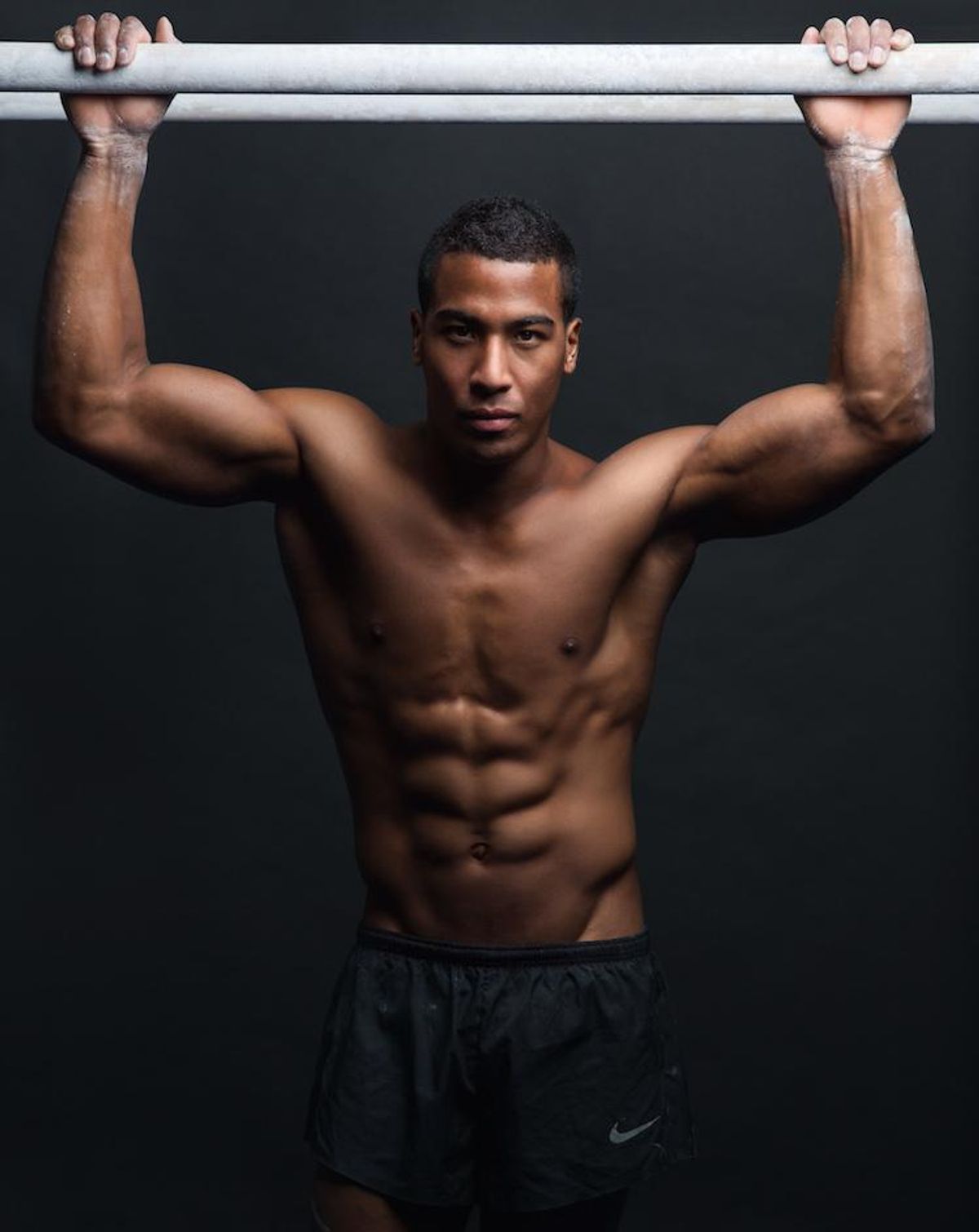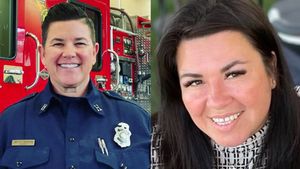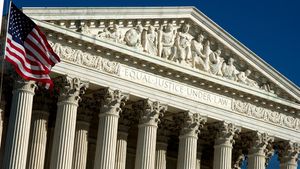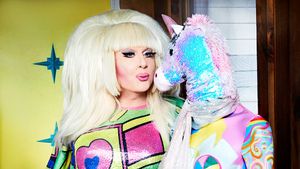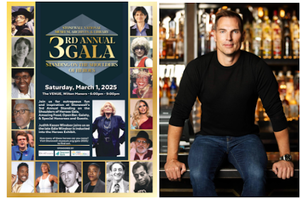Josh Dixon is not only one of the first openly gay atheletes, but he's also an aspiring Olympian. The gymnast is training hard to get to Rio this summer. Between workouts, sauna sessions, and a rigerous diet, Dixon revealed all about how he achieved so much in one of the least LGBT visible spheres: sports.
Out: Let's start from the beginning. How did you involved in gymnastics?
Josh Dixon: I got involved in gymnastics beacause of my two older sisters. I'd go with my parents to pick them up from practice and I would try to copy the acrobatics I saw them doing--usually in our backyard. I was just a daredevil. I was started in a beginner class and one of the team coaches spotted me from there. We all pretty much did every sport through high school, but something about gymnastics stuck.
What made you decide to come out publicly in 2012?
Coming out was necessary in accepting who I was and I couldn't grow as a person, in and outside the sporting world, unless I did so. It wasn't really a question of where I was in my gymnastics career, it was more or less a decision to be a role model and to say, "You know, it's okay to be yourself, and to be yourself in the sporting world." I was actually talking with one of my old teammates from Stanford and he brought up the fact that I was in a very unique position being a U.S. national team member in a very recognizable Summer Games sport. He said: "Now that you're out to your close friends, you're in a very powerful position to break down barriers, especially in sports and within gymnastics." I realized I have an obligation, a responsibility to anybody struggling with similar battles, to say that it's okay to be un-apologetically yourself.
Slideshow: Training Day with Josh Dixon

Photo by Greg Vaughan
Has the sport world been accepting?
Absolutely! I have received the utmost support from the sporting world, the LGBT community, my friends, and my family. I recognized that the environment in which I was living and training lent itself to be nothing but supportive. On the flip side, I can also see that my scenario could be a complete contrast from somebody else's, so I do not shy away from being that supportive voice, public advocate in this arena, and can only hope to lend an inspiring example to somebody else.
Are you aware of a lot of athletes who aren't out? Why do you think visibility is important?
There are and I know of a few. It's really hard to see. I try my best to recognize the situation in which different athletes are living, but I can only hope that having visible out athletes such as myself can only lead to somebody accepting themselves and seeing how much of a positive impact they can have on so many other people, let alone the newfound richness of his or her own life.
Will you be competing in the summer Olympics?
From somebody who is in full training/competing mode, I can only say that it is a reality if I do my job through the Olympic Trials process. Nothing is set in stone in our sport. Our team isn't selected until the last week in June, but our pool of talent is very huge. I'm finally 100 percent healthy after my shoulder reconstruction right before 2015. It's taken a long time to rebuild confidence, mentally and physically, but I'm only better for it. I'm bringing a great attitude to practice everyday, attacking what's ahead of me, and the training group at the Olympic Training Center in Colorado only lifts me to a higher level.
Slideshow: Training Day with Josh Dixon

Photo by Tri Nguyen
Briefly walk us through your daily training schedule and diet.
7:45 am alarm: Breakfast (steel cut oats, egg whites, some sort of starchy carb, and a decent amount of water).
9:00 am: Treatment (usually something shoulder related or constant maintenance on different body aches that come up).
9:30 am - 12:00 pm: Training.
12:00 pm: Lunch (pending output during training, it's usually simple or complex carb, lean protein, some type of fat, yogurt, and plenty of veggies).
1:00 pm: Cardio workout (which can also be done after second gymnastics practice).
2:45 pm: Snack (usually a banana with almond butter).
3:00 pm: Continued treatment/physical therapy.
3:30 pm - 7:00 pm: Second gymnastics practice.
7:00 pm: Dinner (very similar to lunch).
7:30 pm: Recovery Center (use of hot and cold tubs/massage therapists/sauna/steam room).
8:00 pm: Second dinner (something small, maybe some cereal or a recovery shake).
Now the day is done! Then I usually usualy read or write in my journal, which has turned into a lengthy document at this point. Or I catch up with friends outside of this space or indulge in TV. Right now also applying for JD/MBA programs.
Sundays are off and Thursdays are half-days
What's your number one motivating force to follow through with this rigorous schedule and compete?
My motivating force, in sport at this point, would have to be the Olympic Games. There's obviously so much to gymnastics outside of the Olympics, but reaching the highest level of what I want to do, in and out of the gym, drives me to push myself everyday.
And now, what are some of your guilty pleasures?
I absolutely love tennis and can hold my own on the court; any political drama or comedy; Sister Act 1 and 2; any old school music (Aretha, Sam Cooke, Teddy Pendergrass, Stevie Wonder, Ray Charles, oh the list goes on).
Slideshow: Training Day with Josh Dixon
